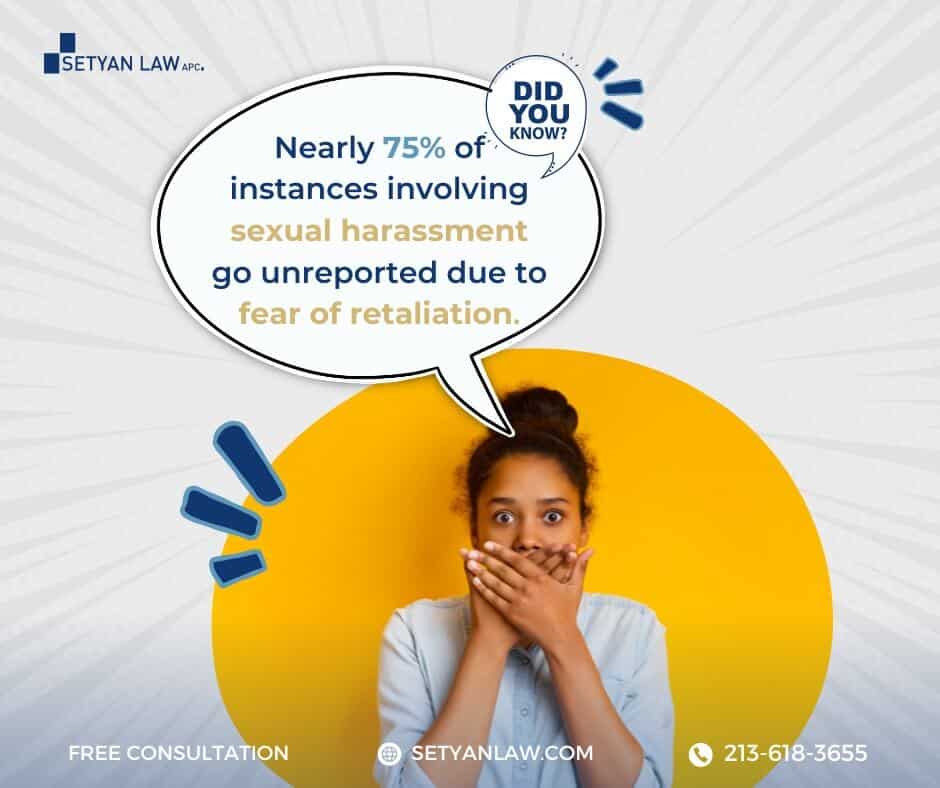Updated January 16, 2026
7 Immediate Resources for Victims of Sexual Assault in California (2026)
Being a victim of sexual assault demands immediate support, not bureaucratic hurdles or endless searches for help. When you or someone you care about has experienced sexual assault, knowing where to turn first can make all the difference in both immediate recovery and long-term healing.
For California residents, access to specialized support services is not just important—it's essential. Sexual assault can leave survivors feeling isolated, vulnerable, and unsure about next steps. However, you don't have to navigate this difficult time alone.
The following seven resources are specifically designed to provide immediate assistance to sexual assault survivors throughout California. Each offers different forms of support, from crisis counseling and medical care to legal advocacy and financial assistance. Additionally, these resources understand the sensitive nature of sexual assault and are equipped to provide trauma-informed care.
Whether the assault happened recently or in the past, these organizations are available right now to help you take the first step toward healing and justice.
RAINN National Sexual Assault Hotline
The RAINN National Sexual Assault Hotline stands as the first line of support for anyone affected by sexual violence in the United States. Established in 1994, this pioneering service has helped over 5 million survivors and their loved ones find critical support during their most vulnerable moments [1].
RAINN Hotline description
RAINN (Rape, Abuse & Incest National Network) operates as America's largest anti-sexual violence nonprofit organization [1]. The National Sexual Assault Hotline was created to solve a crucial problem: before 1994, survivors often struggled to find crisis support [1]. RAINN developed this service by combining the convenience of a single contact point with the expertise of local programs nationwide. Today, the hotline partners with more than 1,000 local sexual assault service providers across the country to deliver comprehensive support [2].
What makes this service particularly valuable is its commitment to privacy and safety. The hotline is completely anonymous—no personal information is required, and chat transcripts are deleted as soon as conversations end [3]. Furthermore, RAINN has partnered with leading technology companies to build a platform that is as secure as current technology allows [3].
How RAINN Hotline helps victims
During a typical hotline session (usually lasting 30-60 minutes), trained support specialists listen with genuine compassion and address immediate concerns [3]. These specialists come from diverse backgrounds but share a dedication to supporting survivors.
The hotline provides:
- Confidential emotional support during crisis
- Resources for healing and recovery
- Referrals for long-term support in your area
- Information about state laws relevant to your situation
Primarily staffed by carefully vetted and trained specialists, the hotline is supervised to ensure all visitors receive positive, helpful experiences [3]. Since its founding, millions of survivors have turned to this service for guidance, validation, and practical assistance [1].
How to access RAINN Hotline
Reaching the National Sexual Assault Hotline is straightforward through multiple channels:
All services are free, confidential, and available 24/7/365 in both English and Spanish [1]. Before contacting the hotline, ensure you're in a safe place to talk, using a private device, and have a secure internet connection if using the online option [3].
For emergencies requiring immediate intervention, always call 911 first [3].
Rape Crisis Centers
Across California, a network of specialized facilities offers crucial local support for victims of sexual assault. These centers represent a vital safety net that forms the backbone of California's response to sexual violence.
What are California rape crisis centers
California rape crisis centers operate as community-based organizations dedicated exclusively to serving sexual assault survivors. Essentially, these centers exist to provide immediate and ongoing support to anyone affected by sexual violence [5]. Unlike general mental health facilities, these centers specifically focus on the unique needs of sexual assault victims.
Throughout California, approximately 84 rape crisis centers and satellite offices provide services in nearly every county [6]. Each center functions as an independent organization while maintaining core standards of care and confidentiality. These centers serve nearly 2,000 requests for help annually in some regions [7].
How rape crisis centers support survivors
Rape crisis centers offer comprehensive services tailored to the specific needs of sexual assault survivors:
- 24-hour confidential hotlines staffed by trained counselors every day of the year [1]
- Crisis intervention providing immediate emotional support and practical guidance
- In-person support including accompaniment to hospitals, police interviews, and legal proceedings [7]
- Mental health counseling and support groups for survivors and their families [8]
- Legal advocacy to help navigate the criminal justice system
- Safe housing for those needing immediate shelter [8]
Moreover, these centers conduct prevention education and community awareness programs. Many centers provide training for law enforcement, healthcare providers, and other professionals who may interact with assault victims [7]. Most importantly, all services remain completely confidential, allowing survivors to seek help without fear [1].
How to find a local rape crisis center
Finding support is straightforward through several methods:
Call the National Sexual Assault Hotline at 1-800-656-4673 (HOPE), which can connect you directly to your nearest local rape crisis center [8]. Alternatively, many centers maintain their own direct crisis lines, such as Community Violence Solutions' Crisis Line at 800-670-7273 [7].
For those in specific regions, organizations like Los Angeles County's SART (Sexual Assault Response Team) maintain lists of designated rape crisis centers serving different communities and language needs [9]. Several centers also provide specialized services for specific populations, including centers focused on Asian and Pacific Islander communities with multilingual support [9].
Consequently, no matter where you are in California, a rape crisis center with trained staff is available to provide immediate, confidential support.
Sexual Assault Forensic Medical Exams (SAFE Kits)
For many victims of sexual assault, a specialized forensic medical examination represents a vital opportunity to collect evidence while receiving compassionate care.
What is a SAFE Kit
A Sexual Assault Forensic Exam (SAFE Kit)—sometimes called a "rape kit"—is a standardized evidence collection procedure performed by trained medical professionals. The exam serves two essential purposes: providing sensitive medical care and preserving evidence that might be used in criminal proceedings [2].
These kits typically contain materials for documenting the exam, paper bags for storing physical evidence, swabs for collecting biological samples, containers for blood and urine, glass slides, and sterile solutions [2]. In California, these exams follow specific protocols outlined in Penal Code Section 13823.7 to ensure proper evidence collection [10].
SAFE-T, California's statewide database, tracks these kits and their processing status throughout the system [11].
Why SAFE Kits are important
SAFE Kits serve crucial functions beyond just evidence collection. First, they provide trauma-informed medical attention, allowing healthcare professionals to check for injuries and help survivors make informed aftercare decisions [2].
Second, they preserve DNA evidence that can help identify perpetrators and hold them accountable, regardless of when a survivor decides to press charges [2]. Evidence collected properly can link suspects to other crimes, even in cases with known offenders [12].
Third, the Sexual Assault Victims DNA Bill of Rights ensures survivors have access to information about their case, including the status of DNA testing [13]. Starting in July 2022, survivors gained the ability to privately track their own kits through a Department of Justice portal [14].
Where to get a SAFE Kit in California
California provides free sexual assault forensic exams to all victims [14]. These exams should ideally occur within 72 hours of the assault to maximize evidence collection, yet can still be valuable up to 5 days after the incident [2].
To obtain a SAFE Kit:
- Go directly to designated hospitals with specialized nurses trained in forensic evidence collection
- Contact law enforcement to request transportation to an appropriate facility
- Reach out to your local rape crisis center for guidance and accompaniment
Importantly, getting an exam does not obligate you to report to law enforcement [14]. California offers "Jane Doe rape kits" that allow anonymous evidence collection with the option to identify yourself later [8]. Every victim has the right to bring a support person to all phases of the exam [14].
Victim Compensation Board (CalVCB)
Financial recovery after sexual assault can be overwhelming, but California offers dedicated assistance through a specialized state program.
What is CalVCB
The California Victim Compensation Board (CalVCB) is a state program dedicated to helping crime victims restore their lives through financial assistance. Unlike many government programs, CalVCB isn't funded by taxpayer dollars but rather through restitution fines, penalty assessments, and federal funds. The board serves as the "payor of last resort," stepping in after other resources like medical insurance and disability benefits have been exhausted [1].
How CalVCB supports sexual assault victims
For victims of sexual assault, CalVCB provides crucial financial relief for numerous crime-related expenses. These include:
- Medical and mental health treatment
- Income loss due to trauma or treatment
- Relocation costs when safety concerns arise
- Crime scene cleanup (if assault occurred at home)
- Home or vehicle modifications for victims who became disabled
- Transportation to medical and legal appointments
Notably, forensic exams (rape kits) are always free in California, regardless of whether a police report is filed [15]. Each expense category has specific limits set by the board, and CalVCB cannot cover expenses for lost, stolen, or damaged property [1].
How to apply for CalVCB assistance
Application options include:
- Online: Create an account at https://online.victims.ca.gov to submit applications, check status, and upload documents [16]
- Through an advocate: Local victim witness assistance centers can help complete applications
- Paper application: Available in 18 languages
Applicants must apply within seven years of the crime or seven years after turning 21 if the victim was a minor [15]. The process typically takes around 90 days, though emergency funds may be available for urgent needs [17].
To strengthen your application, include copies of crime reports, bills, receipts and other related documents [1]. Although cooperation with law enforcement is generally required, exceptions exist for victims of sexual assault, domestic violence, and human trafficking [18].
UC Campus Support Services (e.g., PATH to Care)
Universities throughout California offer specialized resources for members of their campus communities who have experienced sexual violence. These dedicated programs provide a safe harbor amid the often overwhelming aftermath of assault.
What is PATH to Care
PATH to Care represents just one example of the comprehensive support networks established across University of California campuses. These centers function as confidential advocacy and education offices specifically addressing sexual violence, intimate partner violence, stalking, and sexual harassment [6]. Unlike general counseling services, these centers exclusively focus on supporting victims of sexual assault through trauma-informed approaches.
How UC campus services help students
Campus-based programs deliver numerous services beyond what community resources might offer:
- Free, confidential advocacy available to students, staff, faculty, and visitors affected by sexual violence within university contexts [19]
- Crisis intervention from trained professionals who understand the unique challenges of assault within academic settings [20]
- Accompaniment services during medical exams, police interviews, and administrative proceedings [19]
- Prevention education aimed at the entire campus community [6]
Furthermore, these centers coordinate with other campus resources like student health services, counseling centers, and LGBTQIA+ resource centers to provide comprehensive care [19].
How to contact PATH to Care or similar services
Connecting with campus services varies by location, yet remains straightforward:
Most centers maintain both physical offices and 24/7 crisis lines. For instance, UC San Diego's CARE office operates around the clock throughout the year at (858) 534-5793 [20]. Meanwhile, UC Merced provides confidential support even if you choose not to file formal complaints [21].
Upon reaching out, expect compassionate, informed guidance tailored to your specific situation within the university environment.
Protection Orders and Legal Rights
Legal protection remains a cornerstone for safety after sexual assault. California offers specific legal mechanisms designed to safeguard victims from further harm.
What are protection orders
Protection orders—alternatively called restraining orders—are legal documents that prohibit an individual from specific actions. Indeed, these orders create enforceable boundaries between victims and those who might harm them. California recognizes several types:
- Emergency Protective Orders (EPOs): Requested by law enforcement officers, available 24/7, lasting 5-7 days
- Temporary Restraining Orders (TROs): Granted quickly by judges, typically valid for about three weeks
- Restraining Orders After Hearing: Can last up to five years, granted after court proceedings
How protection orders protect survivors
These orders establish crucial safety measures for survivors. First, they can prohibit all contact—whether in-person, by phone, or through social media. Subsequently, they often include "stay away" provisions requiring the restrained person to maintain specific distances (commonly 100 yards) from the protected individual.
Furthermore, protection orders may:
- Bar the restrained person from possessing firearms
- Require immediate removal from shared homes
- Mandate completion of counseling programs
- Protect pets and family members
How to request a protection order in California
Filing begins at your local superior court. Victims can file in the county where they live, where the abuser resides, or where the assault occurred. Afterward, a judge reviews the request—often granting temporary protection by the next business day.
For emergencies, contact law enforcement who can request immediate protective orders. Alternatively, California courts offer self-help resources through their website, where form completion guidance is available.
Sexual Assault Counselors and Advocates
Trained professionals stand ready to guide victims of sexual assault through every step of their healing journey, offering both emotional support and practical assistance.
Who are sexual assault counselors
Sexual assault counselors are certified professionals who complete a minimum 40-hour training as required by California Evidence Code 1035.2 [22]. These specially trained individuals work as employees or volunteers at rape crisis centers and campus advocacy offices. Unlike mandatory reporters, counselors maintain strict confidentiality, creating a safe space for survivors to seek help without triggering unwanted reports [7].
How advocates support survivors
Advocates primarily provide survivor-centered support through various services:
- Confidential crisis intervention and emotional support
- Accompaniment to medical exams, police interviews, and court proceedings
- Assistance navigating complex reporting options and legal processes
- Coordination with campus resources for academic accommodations
Accordingly, these services remain completely confidential—information is shared only with the survivor's explicit permission [7]. Advocates approach their work through a "holistic, affirming, and empowering" methodology, prioritizing the survivor's choices and healing journey [7].
How to request an advocate during interviews or exams
California law explicitly grants victims the right to have a sexual assault counselor present during medical exams and investigative interviews [23]. To request an advocate, simply inform the medical staff or law enforcement officer of your desire for accompaniment. Certainly, healthcare providers must notify victims of this right before beginning any examination [24].
Conclusion
Sexual assault can shatter a person's sense of safety and well-being, yet California offers numerous resources specifically designed to help survivors rebuild their lives. Throughout this article, we've explored seven critical resources that provide immediate support across multiple dimensions of healing.
First and foremost, confidential crisis support through RAINN and local rape crisis centers ensures that survivors can reach out at any hour and receive compassionate guidance. Additionally, specialized forensic exams preserve crucial evidence while providing trauma-informed medical care. Financial assistance through CalVCB helps alleviate the economic burden that often accompanies recovery from sexual violence.
Undoubtedly, the specialized campus resources available throughout the UC system demonstrate how educational institutions have developed targeted support for their communities. Meanwhile, protection orders offer legal safeguards that can help survivors feel secure during their healing journey.
Sexual assault counselors and advocates serve as knowledgeable guides through complex systems, standing beside survivors every step of the way. These professionals understand the nuanced challenges survivors face and provide both emotional support and practical assistance.
Though the aftermath of sexual assault can feel overwhelming, remember that you never need to navigate recovery alone. Each resource mentioned represents teams of dedicated professionals who understand trauma and stand ready to help. The path toward healing looks different for everyone, but these California resources exist to support survivors regardless of when or how they choose to seek help.
Whether you need immediate crisis intervention, ongoing counseling, legal protection, or financial assistance, these resources offer specialized support without judgment. Your safety, healing, and wellbeing matter—reaching out for help represents a powerful first step toward reclaiming your life after sexual assault.
Sexual harassment in the workplace is illegal. If you’ve experienced sexual harassment in the workplace, it’s essential to take action and seek legal support. Sexual harassment is not only morally reprehensible but also illegal under federal and California laws. Finding an experienced sexual harassment attorney in Los Angeles can make all the difference in holding perpetrators accountable and ensuring your rights are protected.
Setyan Law has a team of legal professionals who can answer your questions and guide you through a sexual harassment lawsuit.
If you need workplace harassment litigation, please call Setyan Law at (213)-618-3655. Free consultation.






